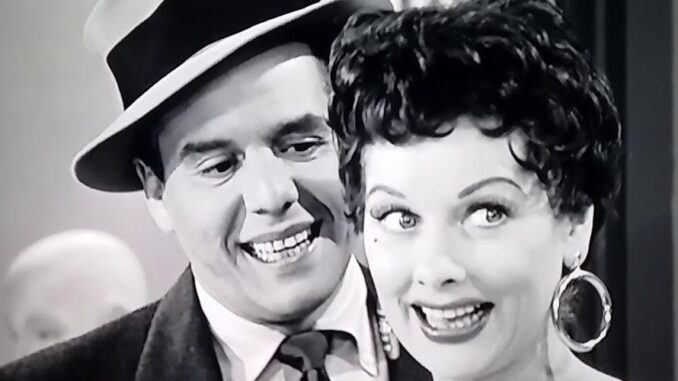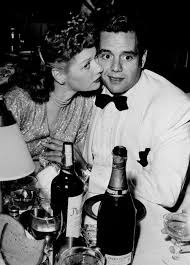
Introduction: A Timeless Show, A Dated Relationship
“I Love Lucy” remains a cornerstone of classic television, celebrated for its groundbreaking comedy and the undeniable chemistry between Lucille Ball and Desi Arnaz. However, when you take a closer look at Lucy and Ricky Ricardo’s relationship, certain dynamics raise eyebrows in today’s more progressive world. Let’s dive into 15 aspects of their relationship that simply wouldn’t fly today and explore why they feel so out of place in the 21st century.
1. Ricky’s Patriarchal Attitude
Ricky often assumed the role of the dominant husband, dictating how Lucy should behave. In modern relationships, equality and mutual respect are key, making his controlling tendencies seem outdated.
2. Lucy’s Schemes Always Backfired
Lucy’s endless attempts to break into showbiz were always thwarted by Ricky or her own missteps. The idea that a wife should stick to domestic duties feels archaic in today’s world, where women are encouraged to pursue their dreams.
3. Ricky’s Explosive Temper
Ricky frequently lost his temper with Lucy, often yelling or scolding her like a child. While played for laughs, this behavior reflects an imbalance of power that modern audiences would find uncomfortable.
4. Gender Stereotypes Reinforced Through Comedy
The show leaned heavily on stereotypical gender roles: women as homemakers and men as breadwinners. These outdated norms are far from the ideals of gender equality we strive for today.
5. Lack of Communication
Ricky and Lucy often resorted to deception rather than honest communication. In modern relationships, transparency is seen as essential for building trust.
6. Ricky’s Jealousy Was Overbearing
Ricky’s jealousy bordered on possessiveness, a trait that modern audiences would likely view as a red flag rather than romantic.
7. Lucy’s Financial Dependence
Lucy had little financial independence, relying entirely on Ricky for money. Today, financial autonomy is considered a crucial aspect of a healthy partnership.
8. The Mockery of Lucy’s Aspirations
Whenever Lucy tried to step outside her traditional role, she was met with ridicule. This dismissive attitude toward her ambitions feels particularly outdated in a world that celebrates female empowerment.
9. Physical Comedy Bordering on Aggression
While slapstick humor was a hallmark of the show, some of the physical comedy—like Ricky spanking Lucy—feels inappropriate and even alarming by today’s standards.

10. Ricky’s Role as the Sole Decision-Maker
From finances to social plans, Ricky had the final say in everything. Modern relationships thrive on shared decision-making and equal partnership.
11. The Portrayal of Marriage as a Battlefield
Lucy and Ricky’s relationship was often depicted as a series of battles, with Lucy scheming and Ricky retaliating. This dynamic feels toxic compared to today’s emphasis on partnership and teamwork in marriage.
12. Cultural Insensitivity
The show occasionally made light of Ricky’s Cuban heritage, with Lucy mocking his accent or cultural customs. Such jokes would be considered offensive and inappropriate today.
13. Unrealistic Expectations for Wives
Lucy was expected to maintain an immaculate home, cook perfect meals, and look glamorous while doing it. These unrealistic standards perpetuated the idea that women must “do it all” to keep their husbands happy.
14. Ricky’s Dismissive Attitude Toward Lucy’s Intelligence
Ricky often treated Lucy as if she were incapable of rational thought, reinforcing the stereotype of women as less intelligent than men—a notion that modern audiences reject.
15. The Lack of Emotional Vulnerability
Ricky rarely expressed vulnerability or emotional openness, perpetuating the harmful stereotype that men must always appear strong and stoic.
Conclusion: A Snapshot of Its Time
“I Love Lucy” is undeniably a masterpiece of television history, but Lucy and Ricky’s relationship reflects the societal norms of the 1950s. While it’s essential to appreciate the show for its cultural impact, it’s equally important to recognize how far we’ve come in redefining what a healthy, equitable relationship looks like.
FAQs
1. Was “I Love Lucy” progressive for its time?
Yes, in many ways. It broke barriers by showcasing an interracial marriage and featuring a strong female lead, even if certain aspects of the relationship feel outdated today.
2. Why did Lucy and Ricky’s dynamic work for audiences in the 1950s?
Their relationship mirrored traditional gender roles of the era, which resonated with audiences at the time.
3. How has modern television evolved from shows like “I Love Lucy”?
Modern shows often depict relationships with more equality, emotional depth, and realistic dynamics.
4. Can we still enjoy “I Love Lucy” despite its outdated elements?
Absolutely! The show remains a comedic gem, but it’s essential to view it through a critical lens.
5. What lessons can modern couples learn from Lucy and Ricky?
While some dynamics are outdated, their chemistry and ability to resolve conflicts with humor can inspire couples to prioritize laughter and connection.